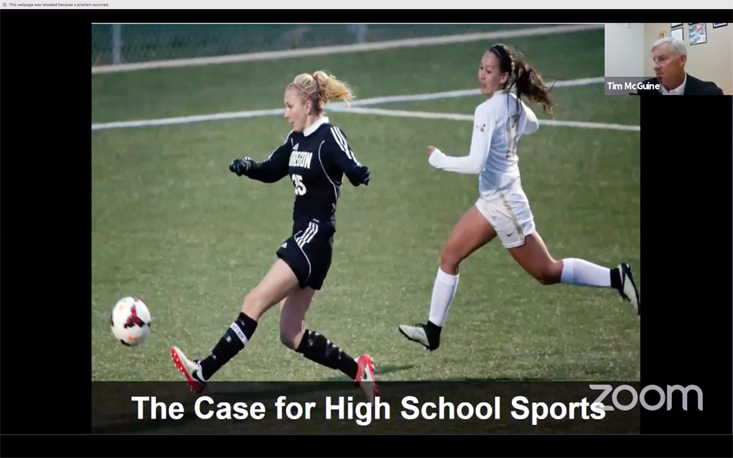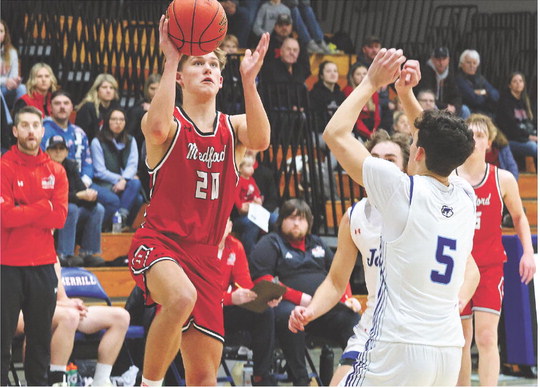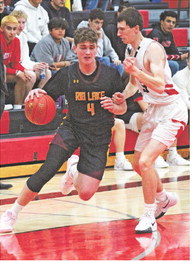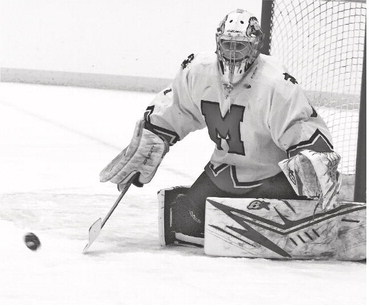Fall sports given the go ahead by WIAA


It’s a question that’s been on minds for weeks – maybe months – in light of the COVID-19 pandemic. Will fall high school sports be held or won’t they?
The WIAA Board of Control met Aug. 14, to answer that question. Some may feel that participating in high school sports decreases the safety and health of student athletes, but as Dr. Tim McGuine, Department of Orthopedics and Rehabilitation, Sports Medicine, at the University of Wisconsin, pointed out, the state’s high school population has not been studied as to effects of the virus.
“There’s not even a consensus about the impact in college settings, so we don’t know in high school,” said McGuine. “I have had public physicians who said they would assume that the risk would be lower, because…the risk of infections, complications is lower in adolescents than it is in adults.”
Travel distance in most cases, is also lower in high school than in college sports, and student athletes are not housed in closequarter dorms like in universities. McGuine said mental health could outweigh the risk of exposure to COVID-19, as the CDC says two things are killing kids more often than the virus – depression and opioids.
“And it’s having a broad impact across the country,” said McGuine. “Our most atrisk kids are at risk for these two instances we see going on.”
McGuine says sports have been shown to be beneficial to reducing pressures of home life in low income families, and those who deal with abuse or substance use. He also said schools who have already started fall sports in controlled situations, have not seen outbreaks of the virus.
“There’s straight evidence out of Iowa, that the transmission in sports settings is very low,” said McGuine.
Another instance, is where 142,000 coaches and player contacts for soccer in San Diego, Calif., saw zero cases identified from playing in the summer league. Mc-Guine says in denying school-sanctioned sports, that club sports could still take place. With school-sanctioned sports, the health environment can be controlled, with licensed professionals, something that might not happen in clubs.
McGuine also said not as many kids may be involved, as there is a significant private cost in club sports.
“We’re not going to stop kids from playing sports, we’re going to stop the at-risk kids…from playing sports, by eliminating high school sports moving forward,” said McGuine.
In making the risk known to coaches, parents, athletes and community members, McGuine says he thinks the state can safely hold high school sports.
Summarizing his remarks, McGuine said high school sports are not offered because of ignorance or disregard for the health of student athletes. Rather, high school sports should be offered by schools as a crucial and necessary intervention, to help kids stay safe and healthy.
“I think we also need to have realistic expectations,” said McGuine. “We can reduce that risk, we can’t eliminate it.”
After hearing from several sources and discussing the matter, the board agreed fall sports will go ahead for 2020-21, but established one-time parameters and context of an alternate fall season, with seven weeks of competition in the spring. Schools are re- quired to declare if they plan to participate in the traditional fall season, or the alternate fall season in the spring, by Sept. 1.
The 2020-21 fall sports season would consist of cross country practices/games running Aug. 17 to Oct. 26; football from Sept. 7 to Nov. 16; volleyball from Sept. 7 to Nov. 2; and swimming and diving from Aug. 17 to Nov. 9.
An alternate fall sports season would consist of cross country from March 15 to May 3; football from March 8 to May 3; swimming and diving from Feb. 15 to April; and volleyball from Feb. 22 to April 12.
With the understanding that schedules are subject to change, the board also set the 2020-21 winter sports seasons, starting with boys basketball from Nov. 23 to March 1; girls basketball from Nov. 16 to Feb. 22; and wrestling from Nov. 23 to Feb. 15.
Spring sports would take place with baseball from April 19 to June 28; golf from April 19 to June 14; softball from April 19 to June 28; and track and field from April 19 to June 28.
Regional, Sectional and State tournaments will be looked at down the road, if the sports seasons can be completed.
John Ashley, executive director of the Wisconsin Association of School Boards, also weighed in and says people need to recognize that the virus is at different levels around the state.
“So, one size fits all, is not going to work,” said Ashley. “We know there are going to be regional differences.”






